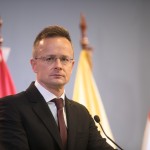The EU had granted the US$1,2 million project to a Greek university and part of the money was supposed to pay the researchers abroad.
Investigators of the European Anti-Fraud Office (OLAF) became suspicious when they saw that cheques were issued in the name of individual researchers but were then deposited into bank accounts with multiple beneficiaries.
Their suspicions increased when it emerged that the cheques were personally deposited into the bank accounts by the lead scientist, the daughter of a professor at the university.
OLAF contacted some of the foreign researchers but “none of them were aware that their name was linked to the project or had any knowledge of bank accounts opened in their names,” OLAF revealed on Tuesday.
The lead scientist had created those accounts and had made herself a co-beneficiary which gave her access to the money once it was deposited.
She was able to embezzle more than US$ 200,000 by withdrawing large sums in cash and making transfers into her private account before the investigators started to notice the suspicious transactions.
“This investigation demonstrates yet again the importance of being able to access banking records in order to fight fraud successfully”, said OLAF Director Ville Itälä.
OLAF won’t disclose further details as judicial proceedings could be open on the case, a spokesperson told OCCRP.






